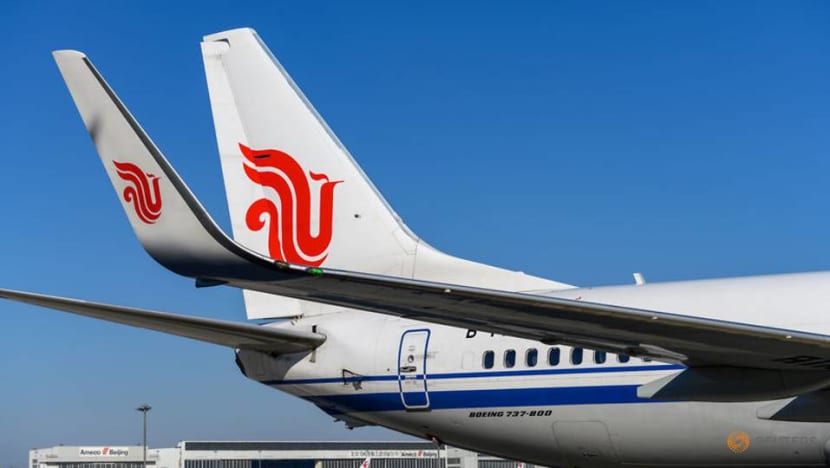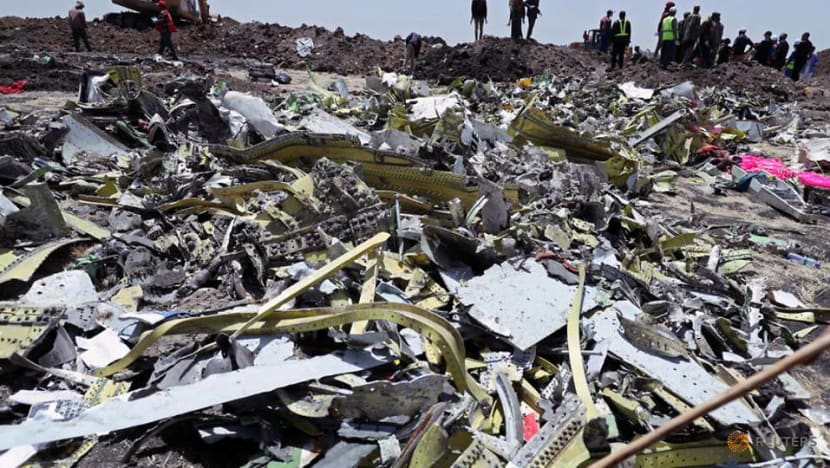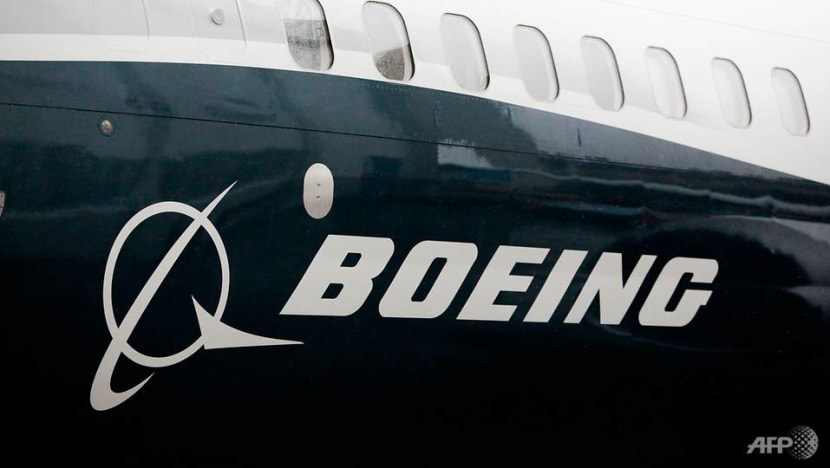commentary Commentary
Commentary: What’s behind China’s swift action to ground Boeing 737 MAX flights?
The move comes as China seeks to develop its aviation industry, says Beijing-based commentator Tom McGregor.

A Boeing 737-800 aircraft of Air China sits on the tarmac at an airport in Beijing, China March 11, 2019. (Photo: REUTERS/Stringer)
BEIJING: After a devastating crash of the Ethiopian Airlines flight that was bound for Nairobi, Kenya killing 149 passengers and eight crew members on board last Sunday (Mar 10), the Civil Aviation Administration of China (CAAC) grounded Chinese airline flights involving Boeing’s 737 MAX the very next day.
China’s move came barely 24 hours of news of the crash, the second in the last six months involving a Boeing 737 MAX, which has only been in service since 2017.
It is wild speculation now but both incidents have many similarities, leading many to wonder whether something is afoot with the aircraft make. Both the Lion Air crash that took place in October 2018 and the Ethiopian Airlines flight crashed shortly after take-off. Details of investigations will certainly be looked at carefully.
When the CAAC suspended flights, a simple explanation was given in the press release:
Given that (the) two accidents both involved newly delivered Boeing 737 MAX planes and happened during (the) take-off phase, they have some degree of similarity.
China’s aviation agency also emphasised safety first in air travel.
Accordingly, other countries are following suit by taking similar measures to suspend domestic carrier flights involving Boeing 737 MAX planes including Singapore, Ethiopia and Indonesia. Some airlines are following suit.
READ: After Lion Air crash, some ask if Boeing’s 737 jets are safe to fly, a commentary
MUTED US RESPONSE
These swift actions worldwide stand in stark contrast to the response from the United States Federal Aviation Administration (FAA) and many American airlines, which reaffirmed that the aircraft was airworthy.
US-based carriers American Airlines and Southwest have both expressed “full confidence” in the aircraft and will continue to fly them.
The 737 MAX is widely recognised to be Boeing’s cash cow. The company has delivered 350 of such jets to airlines worldwide, with over 4,600 orders pending delivery.

A HUGE BUT NECESSARY INCONVENIENCE
The CAAC’s decision on the immediate suspension of the 737 MAX does not come cheap.
China’s air travel industry is one of the busiest around the globe. The United Nations World Tourism Organisation listed in the top 10 busiest airports in 2018, the Beijing Capital International Airport and Shanghai Pudong International Airport - ranked number 2 and number 9 respectively.
It was barely a few years ago when it was a running joke in China that if your flight had taken off two hours later than its scheduled departure time, it was considered to be on time.
Yet, Chinese air traffic controllers have made tremendous progress in improving air traffic flows and increasing the frequency of safe take-offs and landings.
Chinese carriers which had to suspend 737 MAX service - namely Air China, China Eastern Airlines, China Southern Airlines and Hainan Airlines – have a busy schedule and often fly at full capacity.
Twenty-nine international and domestic flights were canceled on Monday alone and hundreds more will be canceled in the week ahead, even as carriers make arrangements to swap planes to avoid service disruption.
That could mean millions in lost revenue for Chinese carriers as they must refund tickets or re-schedule passengers.
COMAC TO FILL GAPS
The context also is that China has been building up its aviation industry in recent years and is on the cusp of more aggressively pushing its C919 aircraft to airline companies worldwide.
The Commercial Aircraft Corporation of China (COMAC), the designer, developer and manufacturer of China’s narrow-body twin-jet C919 passenger aircraft, has begun construction of its customer service training hub in Jiaxing, Zhejiang province.
The centre is expected to train flight attendants, aircraft maintenance and dispatch service staff so that they will be prepared when the C919 and wide-body C929 passenger airplanes start flying commercially.
The roll-out of the C919 has been slow since its launch in May 2017 after a successful but lengthy testing phase, but the opening of the training centre is set to give it a boost.
The 40,500 sq m training base will be operational by September 2020. COMAC has also just signed a joint project agreement between China and Russia to develop the C929 plane.
Still, COMAC has met with roadblocks in its expansion plans, not least because the US FAA has refused to grant certification and approvals for flights or flight tests in US territory.

BOEING ANNOUNCES SOFTWARE UPGRADES
Back to the Ethiopian Airlines disaster. Boeing Chairman and CEO Dennis Muilenburg has since disclosed to employees the company’s plans in “further strengthening” support for the 737 MAX team’s manufacturing, operations and customer service and reaffirmed his confidence in the 737 MAX jets.
Meanwhile, Washington has mandated that Boeing bring forward the roll-out of a flight control software enhancement and updates to training requirements and flight manuals, though Muilenburg did not connect the software upgrade to the Ethiopian Airlines tragedy.
It will be some time before the findings in the downed Ethiopian Airlines blackbox is made public but no doubt the world will be watching closely to see if the reaction thus far led by China is justified.
Tom McGregor is a commentator on Asia-Pacific affairs based in Beijing.














